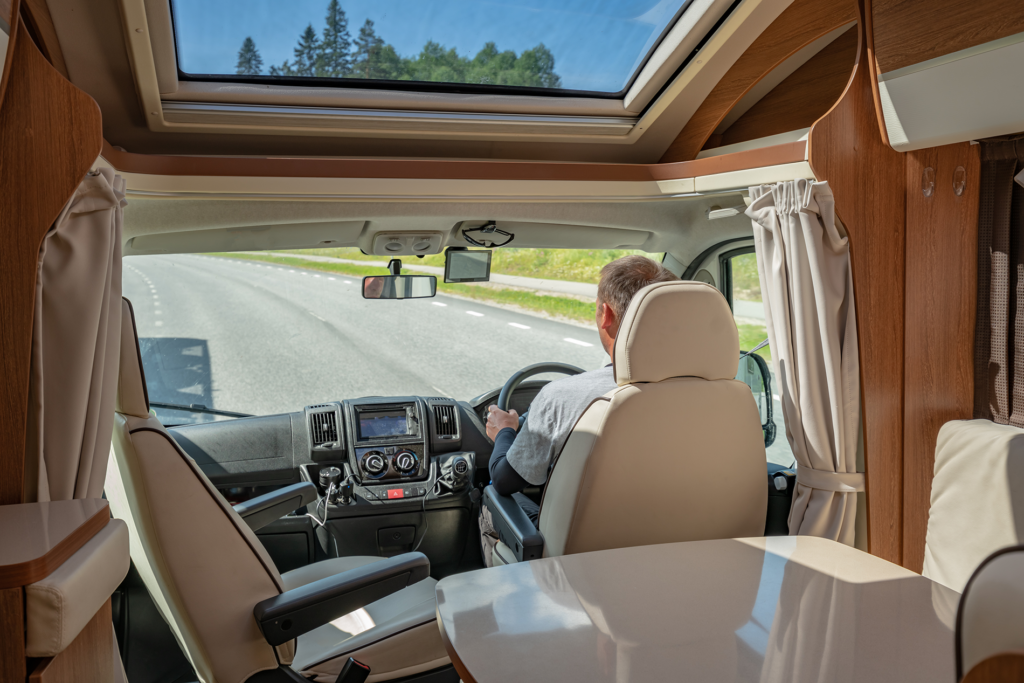Setting out on a journey with a motorhome brings a wonderful mix of independence and comfort, making it possible to see the UK’s stunning scenery at your leisure. However, one critical aspect of motorhome ownership and travel, is road tax for motorhomes.
| Aspect | Detail |
|---|---|
| Tax Categories | Based on weight and engine size |
| Rates for Light Goods | £200 – £325 annually, depending on engine size |
| Rates for Heavy Goods | £165 annually |
| Special Cases | Different rates for vehicles registered between 1 April 2017 and 11 March 2020 |
Understanding Motorhome Road Tax
Motorhome road tax, also known as Vehicle Excise Duty (VED), is a required fee for motorhome owners. The amount you pay will vary, influenced by your vehicle’s weight, engine size, and when it was registered. The price will also change depending on how you choose to pay. Paying one lump sum annually will cost less than if you opt to make two six monthly payments.
Generally, larger engines and motorhomes over 3,500kg in weight face higher tax rates.
Categories and Rates
- Private or Light Goods (TC11): Motorhomes under 3,500kg have tax rates based on engine size. Those with engines up to 1549cc cost £200 for 12 months, while engines above 1549cc cost £325.
- Private Heavy Goods Vehicles (TC10): For motorhomes over 3,500kg, the tax is £165 annually.
- Special Considerations: Vehicles registered between 1 April 2017 and 11 March 2020 might see different rates, depending on specific criteria like CO2 emissions.
Exemptions and Special Cases
Classic motorhomes made before 1st January 1983 are exempt from tax, but you must still apply for this exemption. Meeting certain environmental standards can also result in lower taxes.
Compliance and Payment
It’s important to ensure your motorhome is properly taxed to avoid legal issues. Taxes can be paid yearly or every six months, and you can set up direct debit for convenience. Always verify current rates and rules on the official GOV.UK website.
While the specifics of motorhome road tax might seem complex, a good understanding can help you ensure you’re paying the correct amount and are legally compliant. Whether you’re planning a short trip or a long adventure, being up-to-date with your motorhome’s road tax is a vital part of the preparation.
For detailed information on financing your motorhome and tips for smooth travels, Pegasus Finance offers a range of services. Pegasus Finance provides competitive financing options and excellent customer service to help with the financial aspects of purchasing a motorhome. To get started or for more information, visit its website.
How To Pay Motorhome Road Tax
You tax your motorhome in the same way as you would tax any other vehicle such as a car or motorbike. Before you start, you will need one of these three items:
- The vehicle’s logbook (document V5C) in your name
- If you’ve just purchased the motorhome, you will need the New Keeper green slip from the previous owner
- The letter from the DVLA reminding you to pay your tax
If you don’t have any of these documents, you can request a new copy of the V5C logbook from the DVLA.
You can pay your motorhome road tax by debit or credit card, or by Direct Debit from your bank account. If you own an exempt motorhome or are exempt from paying road tax, you will still need to apply. Your exemption will be added to the application.
Full details on how to tax your motorhome is on the GOV.UK website here.

Beyond Road Tax: Ensuring a Smooth Motorhome Experience
Owning a motorhome involves more than just managing road tax; it includes insurance, maintenance, and financial planning. Here are examples of other costs that should be factored into motorhome ownership.
Motorhome Insurance: Essential for Peace of Mind
Insurance is crucial, ensuring you’re covered for accidents, theft, and damage. Policies vary, so it’s important to choose one that fits your motorhome’s value, how often you use it, and where you’re going.
Regular Maintenance: Avoiding Surprises on the Road
Keeping your motorhome in good condition is key to enjoying your trips. Regular maintenance can prevent breakdowns and expensive repairs. Focus on the engine, tyres, brakes, and living area systems. A maintenance schedule based on usage and the manufacturer’s advice can keep your motorhome running smoothly.
Starting Your Motorhome Adventure: Tips for Beginners
Now that we’ve covered the practicalities, let’s focus on the adventure. Here are some tips for first-time motorhome travellers to ensure an enjoyable journey:
- Plan Your Route: Research destinations and book campsites in advance during peak seasons.
- Pack Smart: Prioritise essentials and tools for minor repairs, plus a few comfort items.
- Know Your Motorhome: Familiarise yourself with its features and practice driving it.
- Stay Safe: Keep your motorhome secure and be prepared for all weather conditions.
- Join the Community: The motorhome community is friendly and helpful; don’t be shy about reaching out. You can find lots of helpful groups on social media networks including Facebook.
- Respect the Environment: Follow leave-no-trace principles to keep places beautiful for future travellers.
Remember, each trip is an opportunity to learn and create unforgettable memories. Your motorhome isn’t just a way to travel; it’s your gateway to freedom, discovery, and adventure across the UK.
For more tips and support, join the Touring Times community. It’s an excellent source of destination guides, product reviews, and hints and tips for exploring the UK in your motorhome. Sign up to the Touring Times newsletter to keep in the loop!
Happy travels! May your motorhome journeys lead to incredible discoveries and the joy of exploration.




